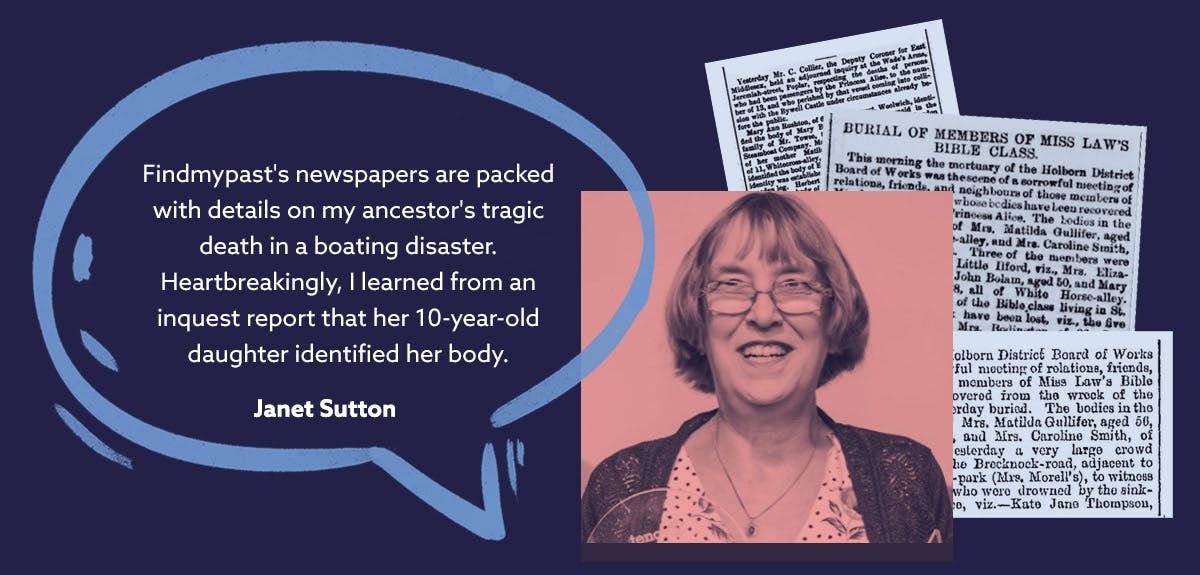10 Pearl Harbor newspaper headlines that shocked the world
5-6 minute read
By The Findmypast Team | November 8, 2023
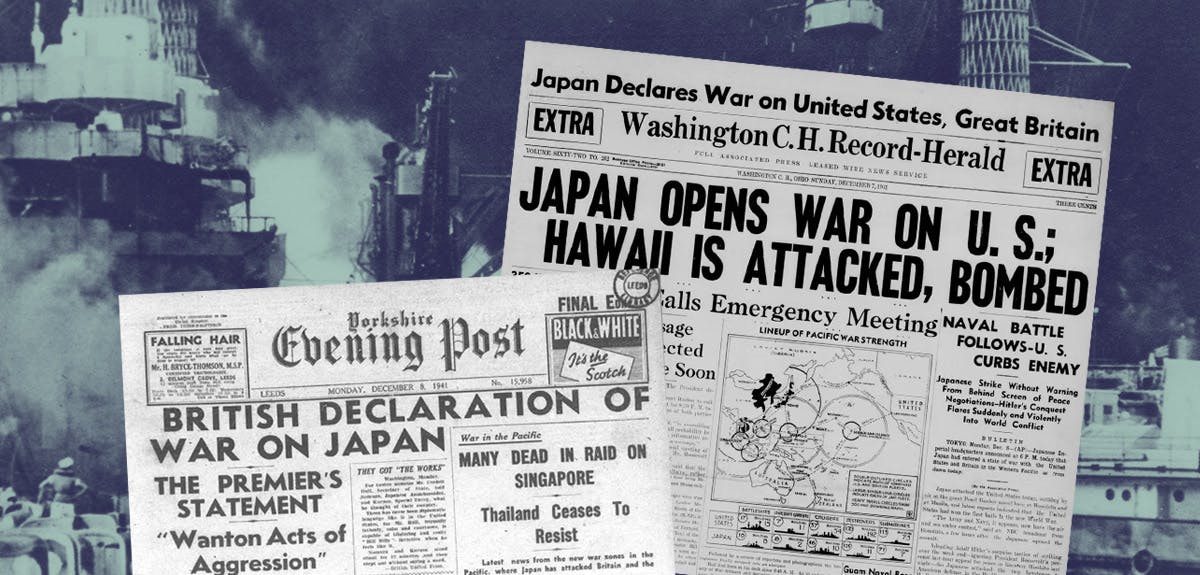
How did your ancestors hear about the event that catapulted America's entry into the Second World War? Read these Pearl Harbor newspaper headlines to find out.
Without social media or 24-hour news networks, the world relied on newspapers for World War 2 news. So when Japanese planes launched a surprise military strike against a US naval base in the Pacific theater of Oahu, Hawaii on December 7, 1941, the international press went into overdrive.

Search for stories in our newspapers and publications
Explore millions of digitised pages of newspapers and other publications from our British and Irish collections, dating as far back as the 1700s.
To help you imagine the shock your relatives experienced upon reading about Pearl Harbor for the first time, we've unearthed some of the most memorable newspaper front pages of the time. Comparing American headlines to others from Britain and Ireland gives us a fascinating insight into how other countries covered the attacks.
What we have here is just the tip of the iceberg. Our British and Irish historical newspaper collection, the largest online, contains countless contemporary perspectives on global events over the last three centuries. Newspapers are valuable resources for understanding the world our ancestors lived in.
Breaking the news in the United States
From New York to Los Angeles, the headlines were jarring. Americans awoke to bold font informing them of this shocking turn of events. It's vital to understand the context of how unexpected Japan's attack was. The country was amidst an active peace dialogue with United States officials, and most of the attention and worry was regarding the possibility of European threats. Moreover, people in the United States had seen the clouds of conflict gathering for a long time. Still, nobody expected the peace to be broken so suddenly, especially without a prior, formal declaration of war.
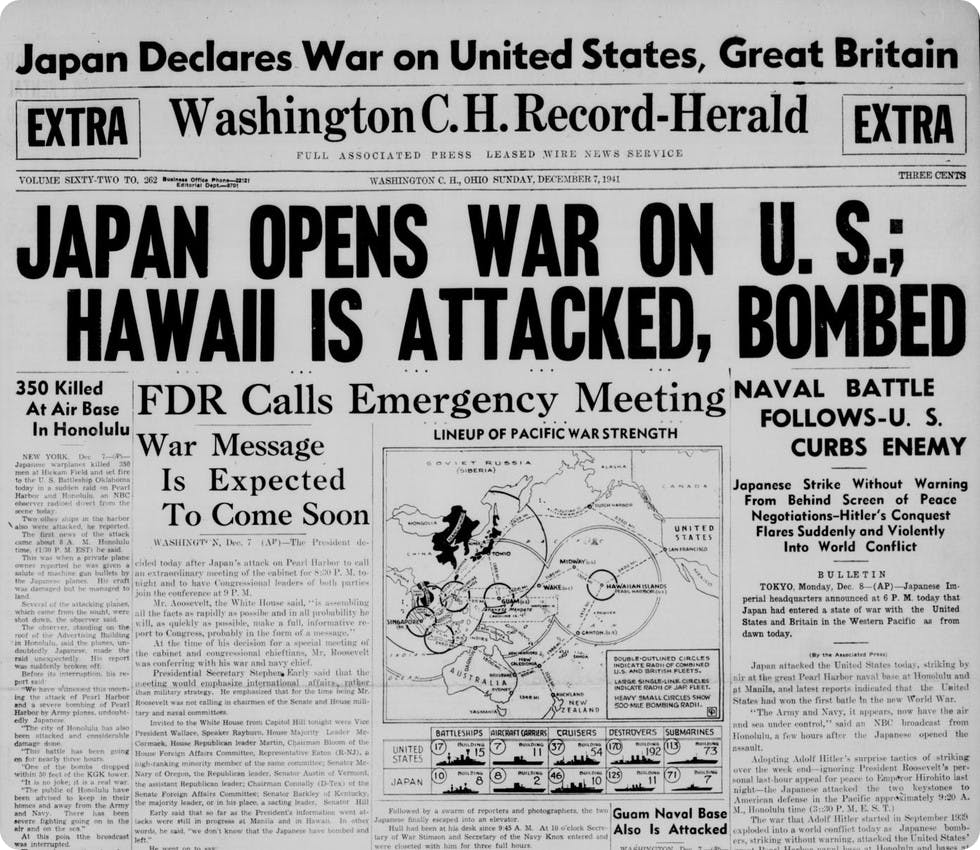
President Franklin D. Roosevelt wasted no time in declaring war, which was widely reported the following day, Monday, December 8. Great Britain actually declared war on Japan before the U.S. did. Winston Churchill fully intended to honor his allegiance to President Roosevelt "within the hour", and quickly announced his country's stance.
Iowa newspaper, The Telegraph Herald shows there was very little disagreement with President Roosevelt's decision at Congress. All but one representative - Jeannette Rankin, a lifelong pacifist who was also against entry into World War 1 - voted to declare war on Japan.
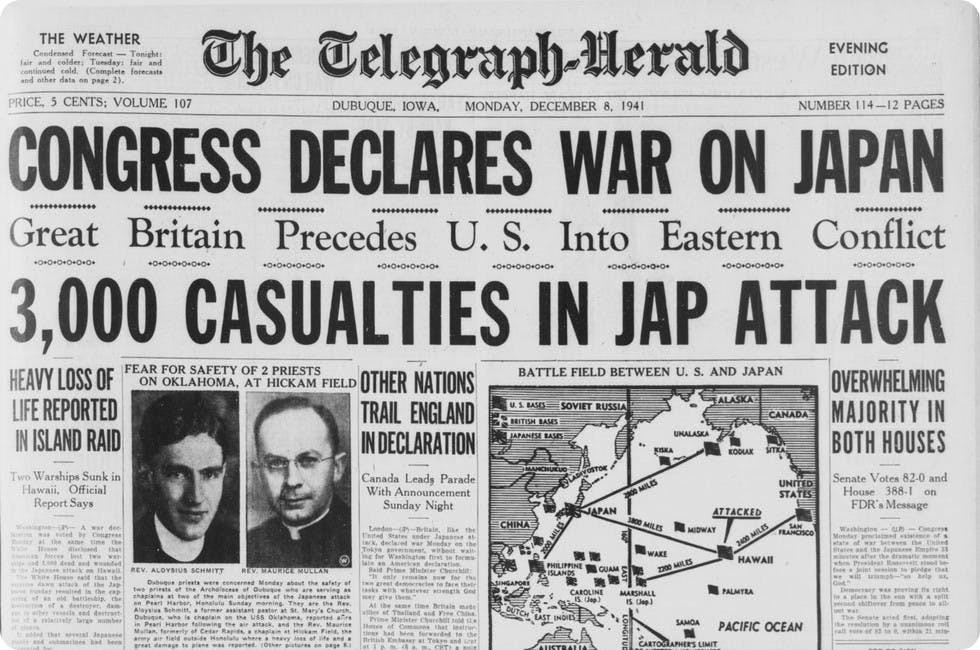
The day after the attack was when the most solid details about the catastrophic loss of life began to make their way into papers. Within days, we can see that many communities in America quickly scrambled to bolster their preparedness in the face of conflict.
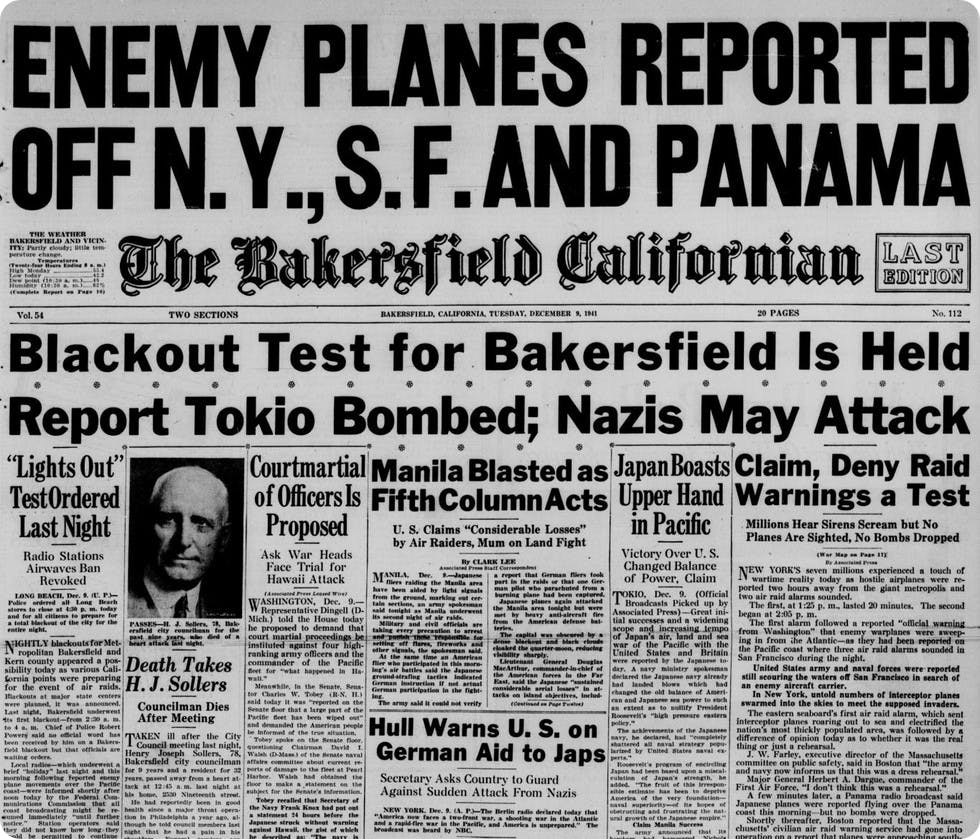
Not surprisingly, rumors of enemy activity and further surprise attacks saw a marked increase, with many wondering if the events of December 7 were just the beginning of the assaults on America.
How Great Britain reacted
Although America and Britain were on friendly terms in 1941, it's important to remember that America and Britain didn't yet have the special relationship that the two countries share today.
News of the attack didn't reach British papers until December 8, but the below clippings from December 7 are very telling and eerily prescient. As you can see from the article on the left, the public in the U.S. and Britain had no immediate plans for American entry into the war - quite the opposite.
On the right, there is an indication that conflict with Japan, though not a foregone conclusion, was a highly likely possibility. Undoubtedly, few realized that Japan would be considered a major threat the very next day.
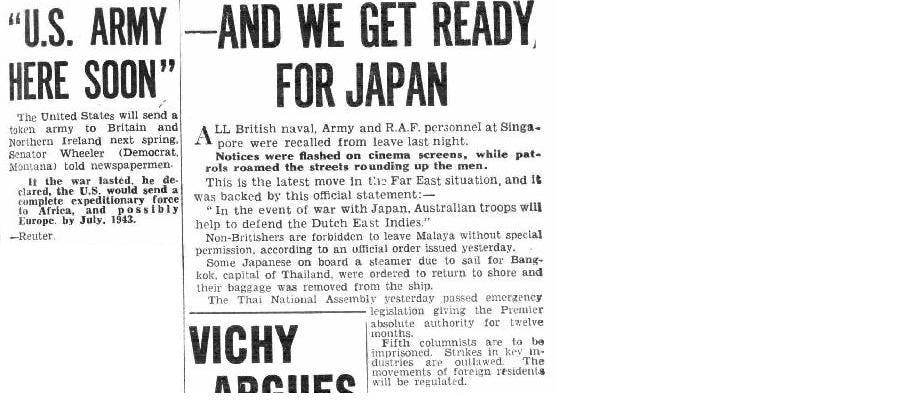
What many Americans don't realize is that the Oahu strikes were just one part of a series of attacks. The British saw attacks against their own Pacific territories - Malaysia, Singapore, and Hong Kong. Plus, other US-held land in the Philippines, Guam, and Wake Island were also targeted.
We can see from the Aberdeen Press and Journal that although the charge on the U.S. wasn't ignored, the main story for the British was attacks on their territories.
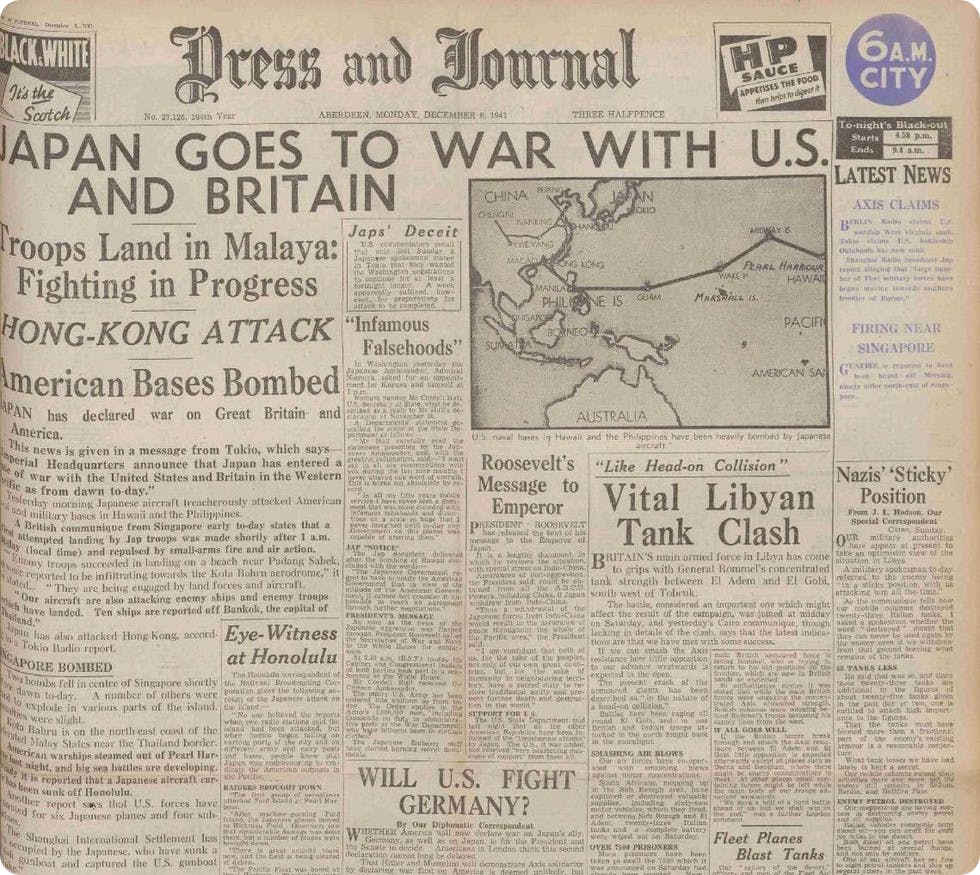
Aberdeen Press and Journal , December 8, 1941. View the full page.
Many UK newspapers had almost exclusive coverage of the British portion of Japan's attack, only mentioning the assaults on American strongholds as a part of the longer list of Japanese actions.
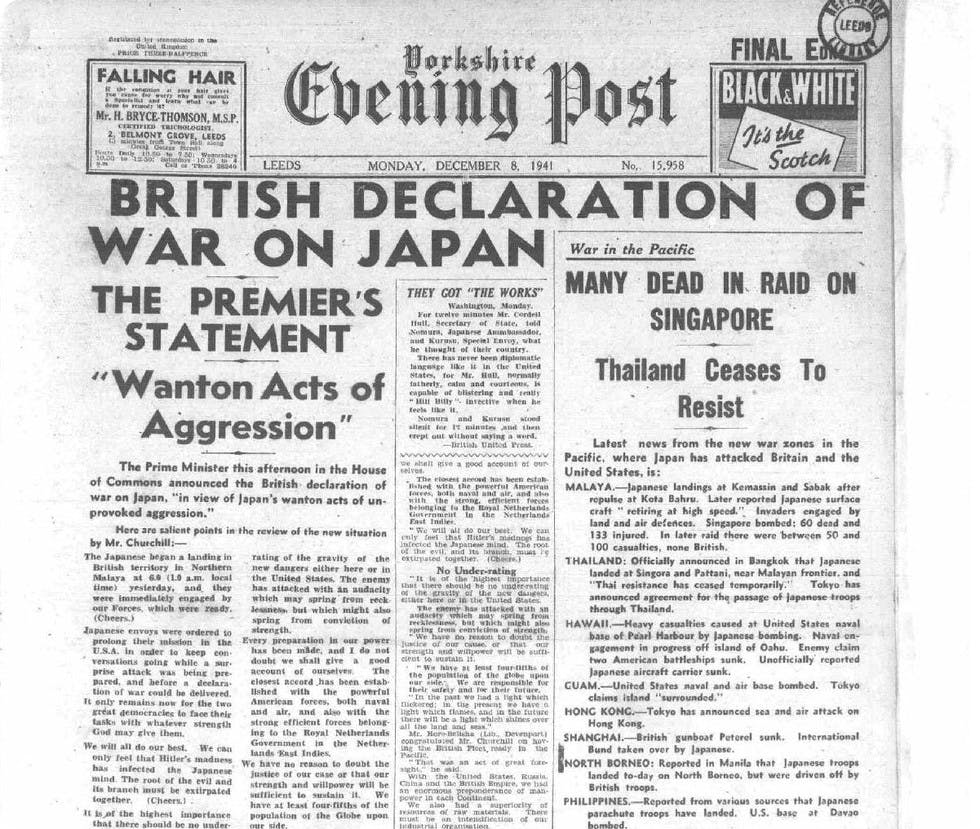
Yorkshire Evening Post, December 8, 1941. View the full page.
The Japanese attack on Malaysia was significant. It marked the first conflict of the war in the Pacific theater. The Japanese successfully attempted a beach landing on Malaysia's northeastern coast, though they suffered heavy casualties.
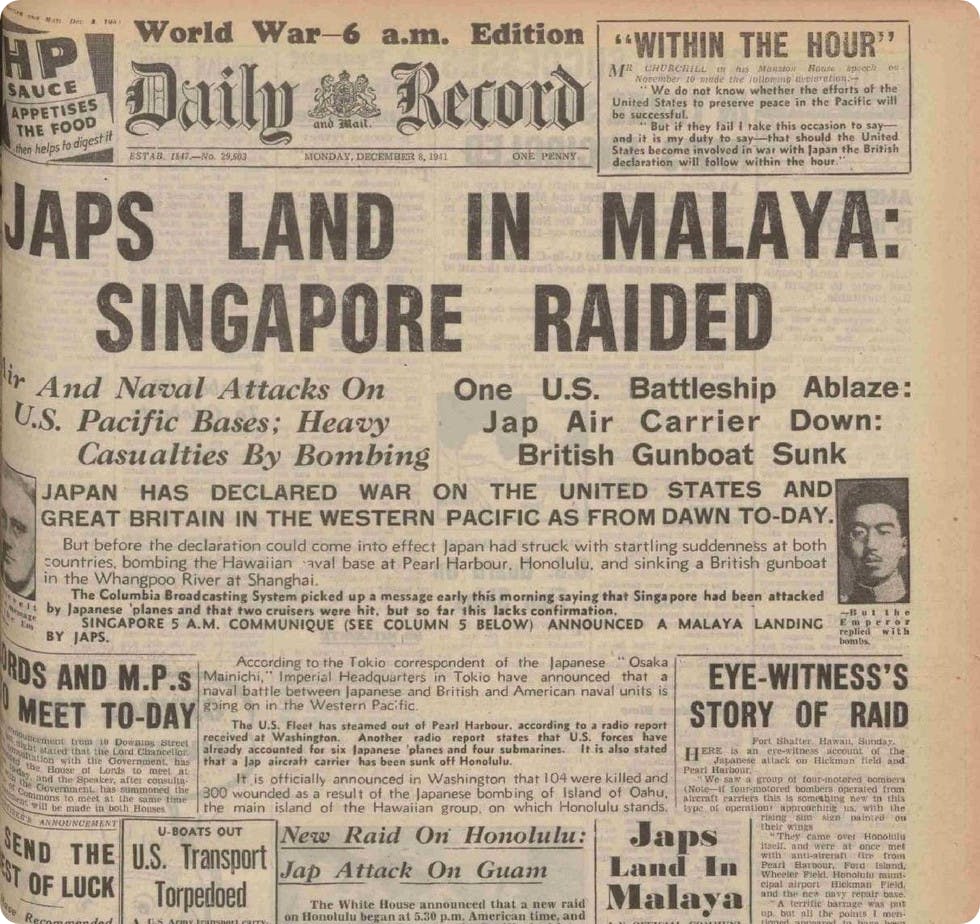
Daily Record, December 8, 1941. View the full page.
Overall, we can see that the attack was equally shocking to the British, undoubtedly due to the fact that they themselves were targets. This really adds perspective to the sheer scale of the global hornet's nest Japan stirred by their actions.
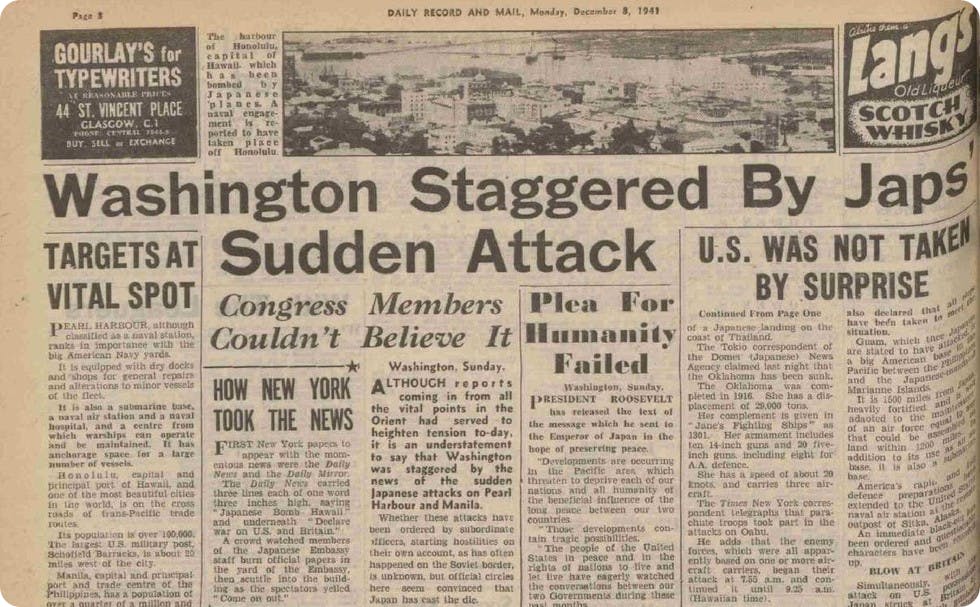
Page eight of the Daily Record, December 8, 1941. View the full page.
Despite focusing on the attacks against their country, British newspapers did devote a significant amount of column space to the assault on America. In-depth coverage from Daily Record highlights this, though, compared to the front covers above, it is notably located on page eight.
Pearl Harbor newspaper stories from Ireland
Newspaper coverage from Ireland skewed to be far more U.S.-centric than the papers in England. This front page shows the details focused on the Hawaiian attack, mentioning Singapore and Malaysia only in passing.
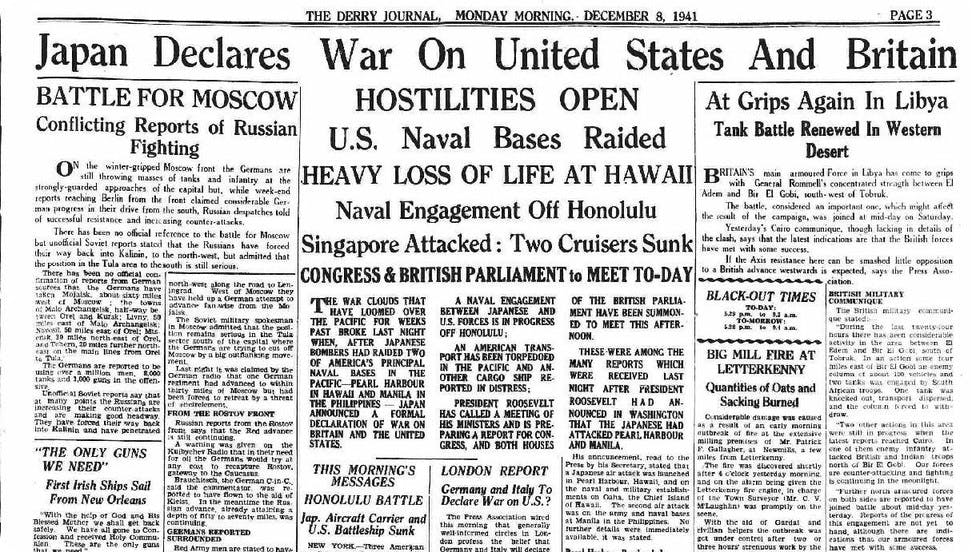
Derry Journal, December 8, 1941. View the full page.
What was your family's wartime experience? Perhaps you have family heroes who fought for their country that you can trace through our extensive military collections. Or maybe you'd like to piece together what life was like for relatives who watched war unfold through newspapers. Whatever your connection to history's conflicts, Findmypast can help you understand the bigger picture of your past.
Other articles recommended for you
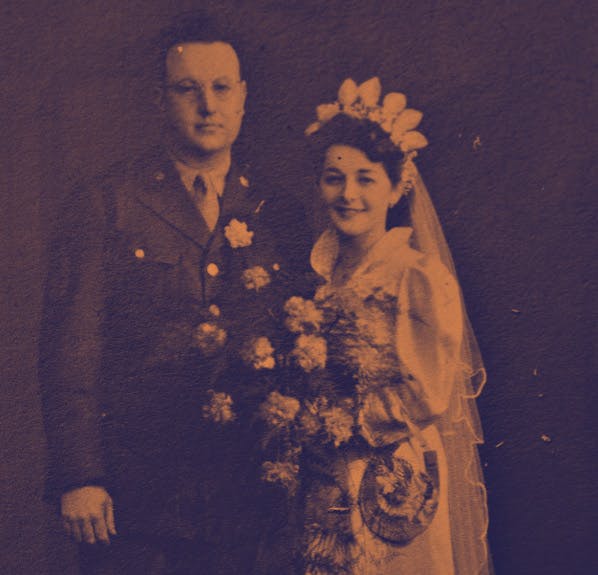
Discover the whirlwind romances of World War 2's GI Brides
Discoveries
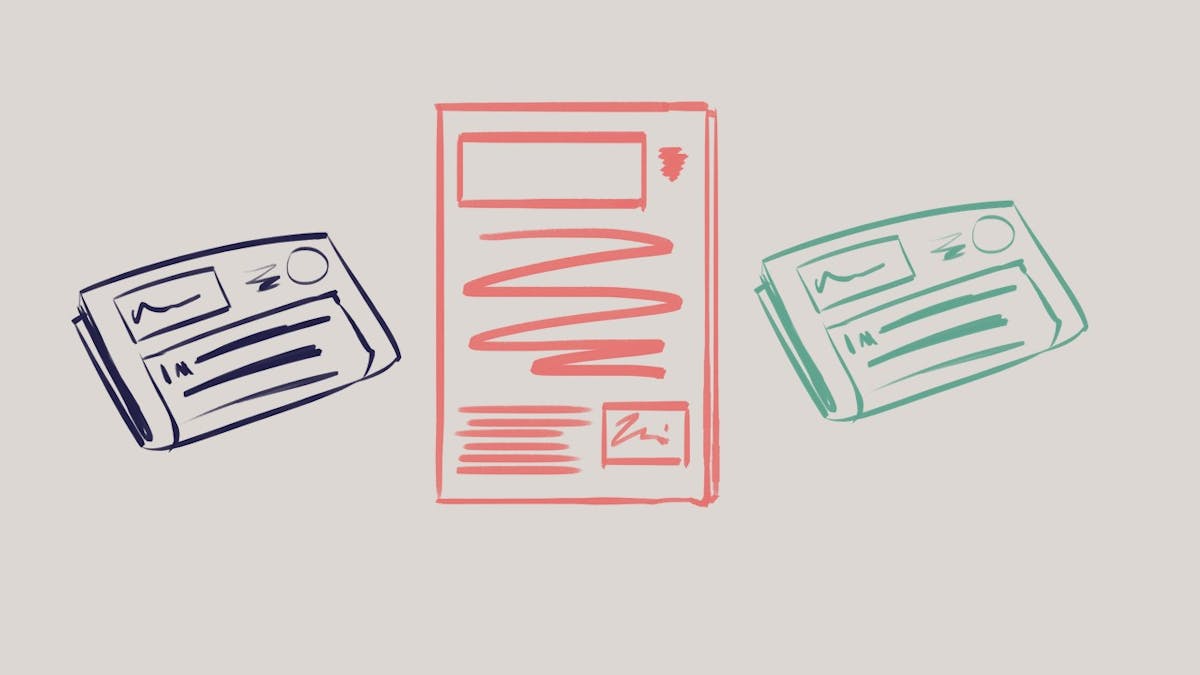
15 pro tips for searching British & Irish newspapers on Findmypast
Help Hub
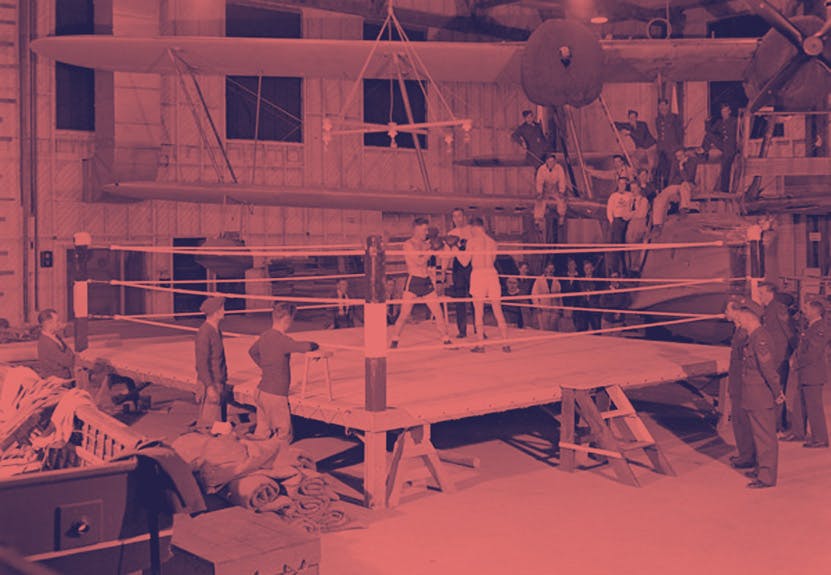
Amazing vintage military photos provide a unique look at Canadian troops during World War 2
History Hub
